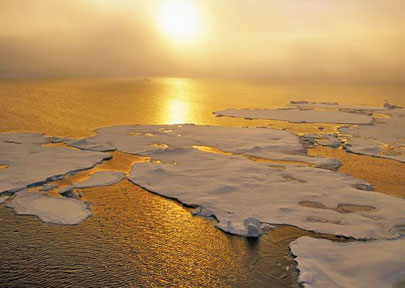|
Severe summer heat caused by humans :
Recent extreme heat-waves 'a result of global warming'
Global warming is responsible for the recent spate of heatwaves,
according to James Hansen, the scientist who first alerted the world to
the dangers of climate change. Dr Hansen, director of NASA's Goddard
Institute for Space Studies in New York, said that the "climate dice"
are now loaded in favour of extreme heatwaves which now affect 10
percent of the Earth's surface, compared with about one percent between
1951 to 1980.
 Dr Hansen said that at least three extreme summers over the past
decade, the 2003 heatwave in Europe which killed more than 50,000
people, the 2010 hot summer in Moscow and last year's droughts in Texas
and Oklahoma, were almost certainly the result of man-made climate
change rather than natural events. Dr Hansen said that at least three extreme summers over the past
decade, the 2003 heatwave in Europe which killed more than 50,000
people, the 2010 hot summer in Moscow and last year's droughts in Texas
and Oklahoma, were almost certainly the result of man-made climate
change rather than natural events.
In a study published in the Proceedings of the National Academy of
Sciences, Dr Hansen and his colleagues said that rising global
temperatures caused by increases in concentrations of carbon dioxide
have significantly increased the probability of such extreme heatwaves.
"This is not a climate model or a prediction but actual observations
of weather events and temperatures that have happened," Dr Hansen said.
"Our analysis shows that it is no longer enough to say that global
warming will increase the likelihood of extreme weather and to repeat
the caveat that no individual weather event can be directly linked to
climate change," he said.
"To the contrary, our analysis shows that, for the extreme hot
weather of the recent past, there is virtually no explanation other than
climate change."
Dr Hansen was the first scientist to warn the wider world of the
dangers of global warming when in 1988 he gave evidence to the US Senate
that the burning of fossil fuels was raising global average
temperatures.
Since then, most scientists have been cautious about attributing any
single weather extreme to climate change but in recent years researchers
have pointed out that some extreme weather events, such as the 2003
heatwave in Europe, fell outside what would be expected of natural
climate variability.
Dr Hansen said that his study shows that the climate dice have been
loaded in such a way as to make unusual hot events more extreme and more
frequent.
"Such events used to be exceedingly rare. Extremely hot temperatures
covered about 0.1 percent to 0.2 percent of the globe in the base period
of our study, from 1951 to 1980," Dr Hansen said. "In the past three
decades, while the average temperature has slowly risen, the extremes
have soared and now cover about 10 per cent of the globe," he said.
- The Independent
|

